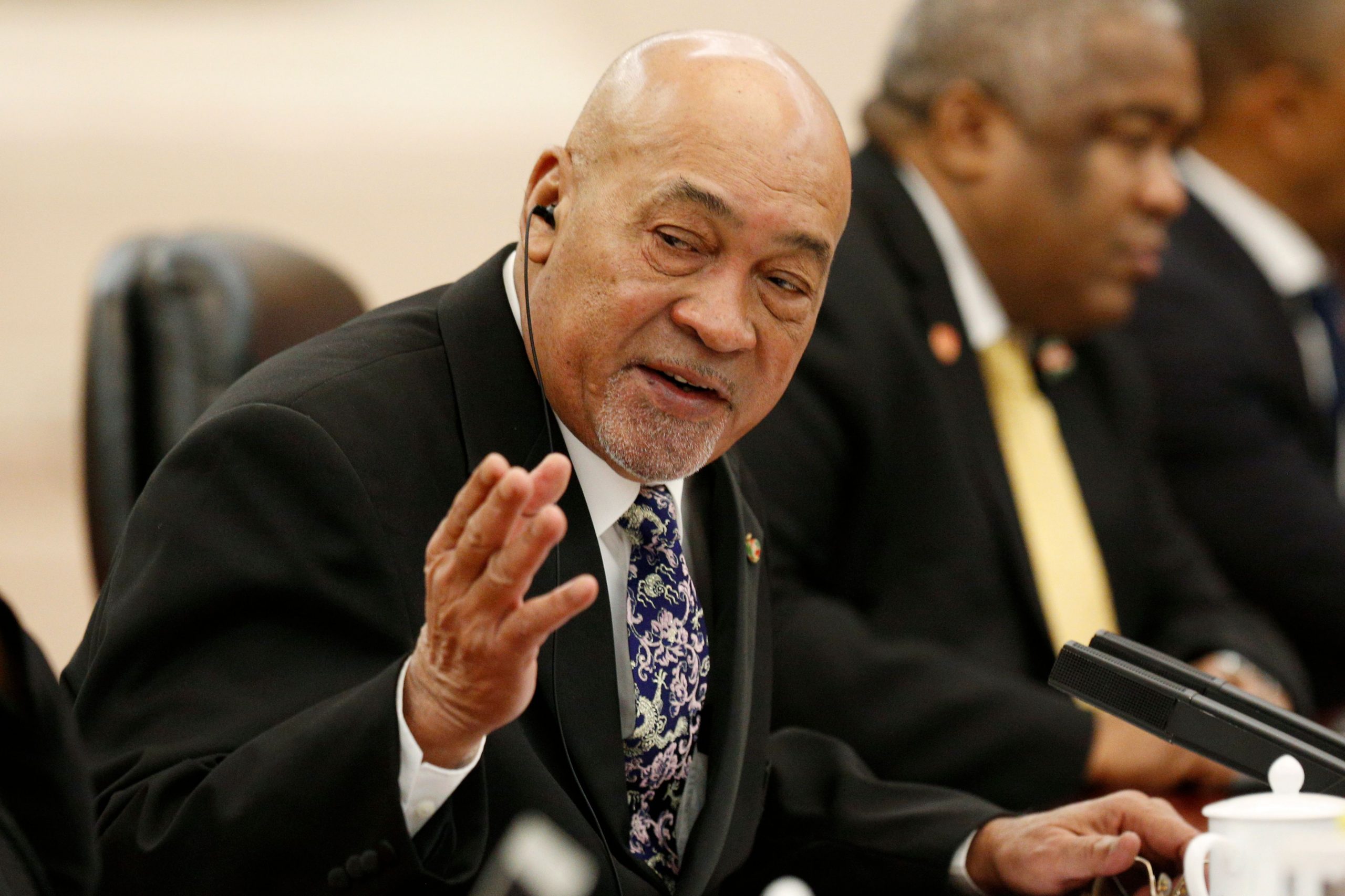By Anil Nandlall
Attorney-at-Law
Last week, I wrote about how the independence of the Judiciary is being undermined by institutionalized policies of and deliberate omissions by the Coalition Government. Apparently, I irked Mr. Winston Jordan, the Minister of Finance. He responded. His response was carried in Stabroek News on the 5th April 2017. The caption of his missive boldly asserted, “contrary to what Nandlall says the Supreme Court now has greater financial autonomy that any period in its history.”
It is instructive that I reiterate, that prior to May 2015, the fiscal, constitutional and procedural architecture under which the Judiciary was financed remained virtually unchanged since our Independence Constitution promulgated on the 26th of May 1966. That architecture was cast in that mold, gifted to us by Her Majesty’s Government and patterned against a model, conceived and designed by the constitutional experts at Westminster, which was promulgated in the newly created Independent States throughout Her Majesty’s Commonwealth. Fifty years later, this architecture still obtains virtually unchanged, in most, if not all of the 52 states of the Commonwealth. From all accounts, it has functioned satisfactorily and has become a fundamental component of that network of the mechanism designed to guarantee judicial independence in these territories.
Lord Mackay QC
Expectedly, the system has not been without scrutiny over the years. For example, some years ago, a dispute arose between the then Attorney General of Trinidad and Tobago and the sitting Chief Justice. It became public and very controversial. The gravamen of the Chief Justice’s complaint was that the Attorney General was attempting to erode the independence of the Judiciary. As a result of the conflagration, the President of Trinidad and Tobago established a high-powered Commission of Inquiry headed by the Former Lord Chancellor of England, Lord Mackay QC. The Commissioners, inter alia, examined the constitutional, legal, parliamentary and procedural architecture by which the Judiciary was funded. They concluded that it contained sufficient checks and balances to assure and guarantee the financial independence of the Judiciary of Trinidad and Tobago. That constitutional construct of Trinidad and Tobago greatly resembled that which existed in Guyana, prior to May 2015.
Indeed, from 1966 to 2015, I am unaware of a single allegation ever made, emanating from the Judiciary, or elsewhere, which tended to suggest that the extant constitutional arrangement under which the Judiciary was financed in Guyana impaired its financial independence or its functional autonomy. It is against this backdrop and the foregoing notwithstanding, that the Coalition Government in 2015, chose to change a status quo that was proven, tested and one about which a complaint was never made. To date, no rational reason has ever been proffered for the change.
According to the Minister, the change is captured in the Fiscal Management and Accountability (Amendment) Act 2015, No. 4 of 2015. This Act was assented to by President David Granger on the 5th August 2015. It is instructive to note, that this Act was debated and passed in the National Assembly during the period that the PPP was absent from the House. From all indications, our presence and objections would not have mattered.
FMAA (Amendment) Act 2015 unconstitutional
To my contention, that the Judiciary is financed by a direct charge on the Consolidated Fund, the Minister, with bold nescience asserts:
“this is both dangerously misleading and factually incorrect, since according to Act No. 4 of 2015 FMAA (Amendment, 2015), Section 3 (b) 80B (7), ‘The annual budget of a Constitutional Agency approved by the National Assembly shall not be altered without the prior approval of the National Assembly’. Hence parliamentary approval is required both initially and for any alteration.”
This emphatic assertion by the Minister as well as Section of the FMAA (Amendment) Act 2015, upon which he relies, are in palpable contravention of the clear and express language of Article 122A (2) of the Constitution, which provides:
“…all Courts shall be administratively autonomous and shall be funded by a direct charge upon the Consolidated Fund…”
What this means is that no parliamentary approval is required for financing for the Judiciary. Therefore, Section 3 (b) of the FMAA Amendment Act 2015, is unconstitutional and void to the extent of its inconsistency with the Constitution by virtue of Article 8 of the Constitution.
Article 8 provides: “This Constitution is the supreme law of Guyana and, if any other law is inconsistent with it, that other law shall, to the extent of the inconsistency, be void.”
Judiciary adjusts budget
Mr. Jordan next takes umbrage with my recount of how the Judiciary’s budget was presented prior to 2015. I recited that the said budget would have been prepared by the Judiciary, in consultation with the Ministry of Finance and the final product was included in the budget of the Ministry of Legal Affairs and submitted to the Ministry of Finance to be consolidated as part of the National Estimates of Expenditure. I pointed out that the practice was, that the Minister of Legal Affairs never altered, or in any manner whatsoever, interfered with the budget of the Judiciary. As a counter, Mr. Jordan argues, that when the budget of the Judiciary was presented to the Ministry of Finance during that consultative process, it was reduced. He gave the years 2013 and 2014 as examples. That may be so. Since it is impossible to conceive that any entity within the state apparatus would be endowed with the fiscal freedom to prepare a budget, to be funded from public funds, without regard to the ability of the State to fund that budget. Obviously, the Minister of Finance, as the custodian of public funds, must have a say, having regard to the State’s financial affordability. To address this dilemma, the practice has always been for the budget of the Judiciary to be agreed upon, having regard to the affordability of the State, through a consultative process by the Judiciary and the Minister of Finance. Significantly, via this process, it is the Judiciary that would have been requested to adjust its budget to meet the recommendations of the Minister of Finance and not the Minister of Finance unilaterally and without consultation, cutting the Judiciary’s budget. This practice allows the Judiciary the fiscal autonomy to determine what it will adjust, where the adjustment are going to be made and by what amounts. In short, this practice did not unduly restrict or interfere with the financial autonomy of the Judiciary.
Appearance is as important as realit
These subtleties are lost upon Mr. Jordan. Indeed, the new procedure, promulgated by Mr. Jordan, nakedly deprives the Judiciary of the very financial autonomy about which he boasts. By this new procedure, the budget of the Judiciary is presented to the Clerk of the National Assembly and the Minister of Finance, without any consultation whatsoever capriciously, arbitrarily and whimsically moves a motion and cuts the lump-sum budget proposals of the Judiciary without any regard whatsoever of the impact such reduction will have, on the Judiciary’s ability to discharge its functions. Significantly, this is done on the floor of the Parliament, for the nation to witness, that the Judiciary’s budget is subject to the whim and fancy of the Minister of Finance. This must appear to the public to be the very antithesis of financial autonomy. Sometimes, the appearance is as important as the reality.
The Honourable Minister attempts to upbraid me in the closing paragraph of his letter for “peddling untruths about matters that are largely out of” my remit. I wish to assure Mr. Jordan, that as long as Guyana continues to be a fledgling democracy, the duty of every Government shall be to govern in accordance with the Constitution and the Law of this land and my remit will always be to ensure that duty is discharged in every sphere of Government. My remit, therefore, is Government itself.












